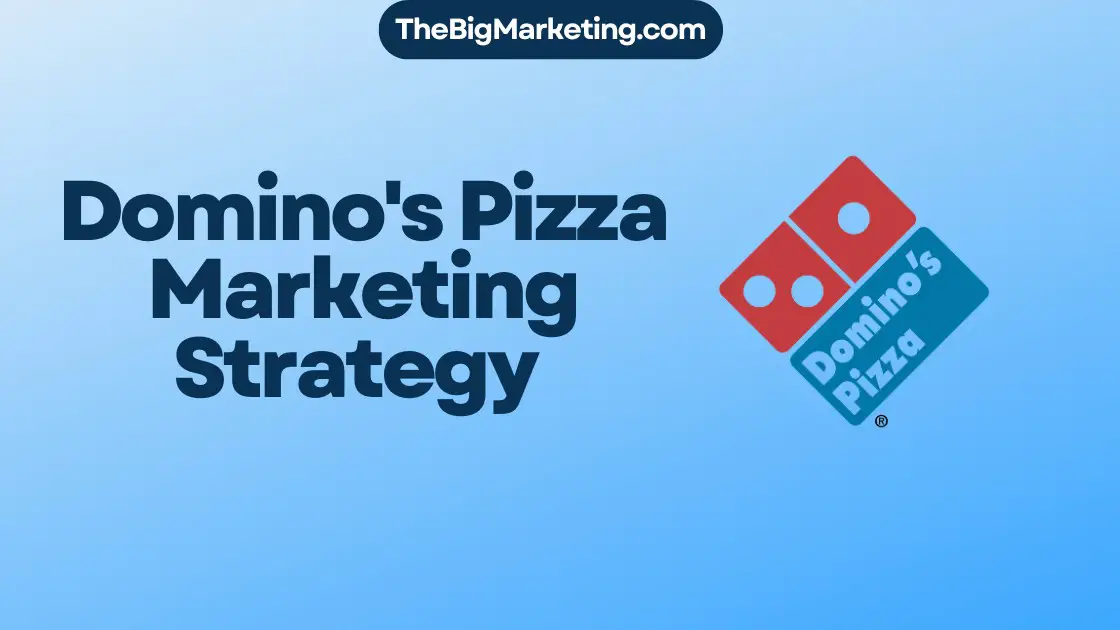In today’s digital age, marketing has become a vital element for businesses to thrive and succeed. Two primary forms of marketing, product marketing and digital marketing, play significant roles in reaching and persuading target audiences. While both are essential, they have distinct differences and strategies that set them apart.
Product marketing focuses on promoting specific products or services, highlighting their features, benefits, and unique selling points. It involves creating a comprehensive strategy to position the product in the market, considering factors such as pricing, targeting the right audience, and conveying a strong value proposition.
On the other hand, digital marketing encompasses a wide range of techniques and channels to promote products or services online. It involves optimizing websites for search engines, employing paid advertisements, utilizing social media platforms, and generating engaging content to attract and engage potential customers.
So, what are the key differences between product marketing and digital marketing? While product marketing revolves around the product itself and its positioning, digital marketing takes a broader approach by creating marketing campaigns and utilizing various digital channels to reach and engage the target audience.
In this comprehensive guide, we will delve deeper into the distinctions between product marketing and digital marketing. We will explore their individual strategies, the skills required for each, and how they can work together to create effective marketing campaigns. By understanding these differences and synergies, businesses can develop holistic marketing approaches to drive growth and success.
Key Takeaways:
- Product marketing focuses on promoting specific products, emphasizing their features and benefits.
- Digital marketing utilizes various channels and techniques to reach and engage potential customers online.
- Product marketing is product-centered, while digital marketing focuses on creating overall marketing strategies.
- Both product marketing and digital marketing are essential for a comprehensive marketing approach.
- Collaboration between product marketing and digital marketing can lead to optimal marketing performance.
What is Product Marketing?
Product marketing plays a crucial role in driving the success of a product in the market. It involves understanding customer needs, conducting competitive research, designing effective pricing strategies, and positioning the product to resonate with target audiences. The product marketing process encompasses various stages, from ideation to go-to-market execution.
Definition of Product Marketing
In simplest terms, product marketing is the discipline of bringing a product to market and promoting its value to customers. It goes beyond product management by encompassing activities such as market research, pricing analysis, messaging development, and sales enablement.
Product Marketing Process
The product marketing process typically involves the following key steps:
- Market Research: Conducting thorough market research to understand customer needs, preferences, and pain points.
- Competitive Analysis: Assessing the competitive landscape to identify unique selling points and differentiate the product.
- Pricing Strategy: Designing robust pricing strategies that align with market demand, perceived value, and profitability goals.
- Messaging and Positioning: Crafting compelling messaging and positioning statements that effectively communicate the product’s value proposition to target customers.
- Go-to-Market Execution: Collaborating with cross-functional teams to launch the product, drive awareness, generate leads, and support sales efforts.
Product Pricing and Positioning
Product pricing is a critical element of product marketing strategy. It involves determining the right price point that aligns with market dynamics and customer expectations, while also considering factors such as production costs, pricing elasticity, and competitive offerings.
Product positioning, on the other hand, refers to how a product is perceived in relation to its competitors. It involves highlighting the unique features, benefits, and value propositions of the product to differentiate it from similar offerings and capture the attention of target customers.
By effectively executing product marketing strategies, businesses can increase brand awareness, drive customer engagement, and ultimately boost sales.
What is Digital Marketing?
Digital marketing is a comprehensive approach to reaching and engaging with customers through various digital channels. These channels include websites, blogs, emails, mobile apps, and social media platforms. The main objective of digital marketing is to create targeted and relevant content that resonates with potential customers, ultimately driving conversions and maximizing marketing effectiveness.
By leveraging the power of digital marketing channels, businesses can expand their reach and connect with their target audience more efficiently. Unlike traditional marketing methods, digital marketing allows for precise targeting and personalized messaging, ensuring that the right content is delivered to the right individuals at the right time.
The effectiveness of digital marketing lies in its ability to track and analyze customer interactions, resulting in data-driven decision-making. This data can be used to optimize marketing campaigns, improve customer experiences, and identify new opportunities for business growth.
When it comes to digital marketing, the key is to create compelling and engaging content that captures the attention of potential customers. This can be done through various strategies such as search engine optimization (SEO), content marketing, social media advertising, and email marketing. By delivering valuable and relevant content, businesses can establish trust, build brand loyalty, and drive conversions.
Digital Marketing Channels
Digital marketing utilizes a variety of channels to connect with customers. Here are some key digital marketing channels:
| Channel | Description |
|---|---|
| Websites | Company websites serve as the central hub for showcasing products/services, providing information, and driving conversions. |
| Blogs | Blogs offer a platform for businesses to share valuable content, establish thought leadership, and engage with their target audience. |
| Emails | Email marketing allows businesses to communicate directly with their customers, delivering personalized messages, promotions, and updates. |
| Mobile Apps | Mobile apps provide a convenient way for businesses to reach and engage with customers on their smartphones, offering personalized experiences and features. |
| Social Media | Social media platforms like Facebook, Twitter, and Instagram enable businesses to connect with a wide audience, build brand awareness, and drive engagement. |
Each digital marketing channel serves a unique purpose and offers different opportunities for businesses to connect with their target audience. By leveraging a combination of these channels, businesses can create a well-rounded digital marketing strategy that effectively reaches and engages potential customers.
Key Differences between Product Marketing and Digital Marketing
In the world of marketing, there are two distinct approaches – product marketing and digital marketing. While both aim to promote and sell products, they differ in their focus and strategies. Understanding these differences is crucial for businesses to develop effective marketing campaigns.
Product marketing is centered around the product itself, emphasizing its unique features, pricing, and positioning. The goal is to highlight the value and benefits of the product to potential customers. Product marketing involves in-depth market research, identifying target audiences, and creating compelling messaging that resonates with consumers.
Digital marketing, on the other hand, takes a broader approach by focusing on overall marketing strategies and campaigns. It leverages digital channels such as websites, social media, email marketing, and search engine optimization (SEO) to reach and engage potential customers. Digital marketing is more campaign-focused, aiming to drive brand awareness, generate leads, and increase conversions.
One of the key differences between product marketing and digital marketing lies in their approach to creativity and knowledge. Product marketing heavily relies on extensive product knowledge and understanding customer needs and preferences. It requires a deep understanding of the product’s features and benefits, as well as market research to position the product effectively.
On the other hand, digital marketing emphasizes creative thinking and the ability to develop innovative marketing campaigns that resonate with target audiences. It involves creating engaging content, utilizing various digital channels, and continuously adapting strategies to stay relevant in the ever-changing digital landscape.
Take a look at the following table for a visual comparison of the key differences between product marketing and digital marketing:
| Aspect | Product Marketing | Digital Marketing |
|---|---|---|
| Focus | Product-oriented | Campaign-oriented |
| Strategy | Pricing, Positioning | Overall marketing campaigns |
| Creativity | Knowledge-driven | Creative thinking |
| Channels | Traditional marketing channels | Digital platforms |
| Approach | Targeted | Broad reach |
As seen from the table, product marketing focuses on the specific product itself and its unique selling points, whereas digital marketing aims to reach a broader audience through various digital platforms. Both approaches require different skill sets and strategies, and businesses often benefit from adopting a combination of both to achieve marketing success.
Skills Required in Product Marketing
To excel in product marketing, professionals need a diverse skill set that combines product knowledge, market research expertise, pricing strategies, and go-to-market strategy development. Let’s delve into each of these essential skills:
1. Product Knowledge
Having an in-depth understanding of the product is fundamental to product marketing success. Product marketers must comprehensively grasp the features, benefits, and unique selling points of the product they are promoting. This knowledge allows them to effectively communicate the value proposition to potential customers and differentiate the product from competitors.
2. Market Research
Market research is a critical skill in product marketing, enabling professionals to uncover valuable insights about the target audience, competitors, and market trends. By conducting thorough market research, product marketers can identify customer needs, analyze market gaps, and make data-driven decisions that inform product positioning and marketing strategies.
3. Pricing Strategies
Pricing plays a pivotal role in product marketing. Product marketers must possess expertise in developing pricing strategies that strike a balance between maximizing profit margins and ensuring market competitiveness. By conducting competitor analysis, evaluating demand, and considering production costs, they can determine optimal pricing models that attract customers while driving profitability.
4. Go-to-Market Strategy
A well-designed go-to-market (GTM) strategy is crucial for successful product launches. Product marketers must have the ability to create comprehensive GTM plans that encompass product positioning, target audience identification, channel selection, messaging, and promotion strategies. By aligning all aspects of the GTM strategy, product marketers can ensure a cohesive and effective approach to entering the market.
Developing proficiency in these skills empowers product marketers to navigate the complex landscape of product marketing and drive impactful results. With a strong foundation in product knowledge, market research, pricing strategies, and go-to-market strategy development, professionals can excel in their roles and contribute to the overall success of their organizations.
Skills Required in Digital Marketing
In today’s digital landscape, successful marketers need to possess a diverse set of skills to effectively navigate digital channels and drive meaningful engagement with their target audience. Let’s explore the key skills required in digital marketing:
1. SEO (Search Engine Optimization)
In order to improve online visibility and drive organic traffic, marketers must have a solid understanding of SEO techniques. This involves optimizing website content, conducting keyword research, and implementing on-page and off-page SEO strategies.
2. SEM (Search Engine Marketing)
SEM involves utilizing paid advertising platforms like Google Ads to increase website visibility and attract targeted traffic. Marketers need to create compelling ad campaigns, select relevant keywords, and monitor and optimize campaign performance.
3. Content Marketing
Content marketing is a key component of digital marketing, involving the creation and distribution of valuable, relevant, and engaging content. Marketers should possess strong writing and storytelling skills, understand audience needs, and be adept at content promotion across various channels.
4. Analytics
Analytical skills are essential for interpreting data and measuring the success of digital marketing efforts. Marketers need to be proficient in using analytics tools to track website traffic, monitor campaign performance, and gain insights for optimizing marketing strategies.
In addition to these core skills, staying updated with the latest digital marketing trends and technologies is crucial for success in this ever-evolving field.
How Product Marketing and Digital Marketing Complement Each Other
In today’s digital age, the collaboration between product marketing and digital marketing is crucial for businesses to thrive and succeed. By leveraging digital channels and aligning messaging and positioning, these two disciplines create a cohesive marketing strategy that maximizes reach and impact.
Digital marketing channels, such as websites, social media platforms, and email marketing, provide businesses with an array of opportunities to reach and engage with their target audience. These channels serve as powerful tools for promoting products and capturing the attention of potential customers. By strategically utilizing digital channels, businesses can increase their brand visibility and drive traffic to their products or services.
However, simply having a presence on digital platforms is not enough. It is essential to ensure that the messaging and positioning of the products are aligned with the overall marketing strategy. This is where product marketing plays a crucial role. Product marketing focuses on understanding customer needs, creating compelling value propositions, and positioning products effectively in the market.
By collaborating with product marketing, digital marketing teams can craft targeted and relevant content that resonates with the target audience. This collaboration ensures that the messaging across digital channels aligns with the unique selling points and value propositions of the products. It helps in creating a consistent brand voice and reinforces the brand’s positioning in the minds of the customers.
Moreover, the collaboration between product marketing and digital marketing enables businesses to leverage data-driven insights. Product marketing teams provide valuable insights into customer preferences and market trends, which can inform digital marketing strategies. By analyzing data and customer behavior, businesses can optimize their digital marketing campaigns to drive better results and increase conversions.
To illustrate the complementary nature of product marketing and digital marketing, let’s take a look at an example:
Example: Aligning Messaging and Positioning
| Product Marketing | Digital Marketing |
|---|---|
| Conducts market research to identify customer needs and preferences | Utilizes SEO techniques to increase organic visibility in search engines |
| Develops compelling value propositions and unique selling points | Creates engaging content for social media platforms to attract and engage with the target audience |
| Positions the product as a solution to customer pain points | Uses email marketing campaigns to nurture leads and drive conversions |
| Collaborates with digital marketing to align messaging and positioning across all channels | Analyzes data and customer behavior to optimize digital marketing campaigns |
Through a collaborative approach, businesses can ensure that their product marketing and digital marketing efforts are working harmoniously to achieve common goals. The synergy between these two disciplines ultimately results in a more effective and impactful marketing strategy.
In the next section, we will explore real-life case studies of successful collaborations between product marketing and digital marketing, highlighting the positive impact on business growth and conversions.
Examples of Successful Collaboration between Product Marketing and Digital Marketing
Real-world case studies illustrate the power of successful collaborations between product marketing and digital marketing in driving growth, increasing conversions, and building brand loyalty. These examples showcase the synergistic effect of combining the strengths of both disciplines to achieve remarkable results.
Case Study 1: Company X
Company X, a leading e-commerce brand, leveraged the collaboration between their product marketing and digital marketing teams to launch a new product line. By aligning their messaging and positioning strategies, they effectively communicated the unique value propositions of the products across various digital channels, such as social media, email marketing, and content promotion. As a result, they witnessed a significant increase in website traffic, conversion rates, and ultimately, sales.
Case Study 2: Brand Y
Brand Y, a well-known lifestyle company, successfully integrated their product marketing and digital marketing efforts to enhance their customer journey. By leveraging digital channels like their website, mobile app, and social media platforms, they provided tailored and engaging content to their target audience. Their collaborative approach, which entailed crafting personalized messaging and offers, led to a substantial boost in customer satisfaction, retention, and overall brand loyalty.
These case studies clearly demonstrate how collaboration between product marketing and digital marketing can drive tangible growth, conversions, and customer loyalty. By combining their expertise and resources, businesses can unlock the full potential of their products and effectively reach and engage their target audience through diverse digital channels.
Now that we’ve explored successful collaboration between product marketing and digital marketing, let’s delve deeper into the importance of integrated marketing strategies in the next section.
Importance of Integrated Strategies in Marketing
Integrating product marketing and digital marketing is essential for businesses seeking to maximize their marketing success. By combining the strengths of both disciplines, companies can create integrated marketing strategies that drive results. This section explores the importance of integrating product marketing and digital marketing, highlighting the benefits of data-driven decision-making and optimized campaigns.
Data-Driven Decision-Making
Data plays a crucial role in marketing, enabling businesses to make informed decisions based on actionable insights. Combining product marketing and digital marketing allows for the collection and analysis of comprehensive data, enabling companies to gain a deeper understanding of their target audience, competitors, and market trends. By leveraging data-driven decision-making, businesses can develop effective strategies that resonate with their customers and drive conversions.
Optimizing Campaigns
Integrating product marketing and digital marketing provides the opportunity to optimize marketing campaigns across multiple channels. A holistic approach allows businesses to align their messaging and positioning consistently, ensuring a seamless customer experience. By leveraging the strengths of both disciplines, companies can create targeted and impactful campaigns that resonate with their target audience, resulting in improved campaign performance and increased ROI.
| Benefits of Integrated Strategies in Marketing | Challenges in Integrated Strategies in Marketing |
|---|---|
|
|
Benefits and Challenges of Product Marketing and Digital Marketing Integration
Integrating product marketing and digital marketing offers numerous benefits to businesses, including a seamless customer journey and increased visibility. By combining the strengths of both strategies, companies can create a more holistic approach to their marketing efforts.
Benefits of Integration
A seamless customer journey is one of the major advantages of integrating product marketing and digital marketing. When these two disciplines work in harmony, customers can experience a consistent and cohesive journey from discovery to purchase. This integration allows for a smooth transition between the product information and messaging provided by the product marketing team and the various digital touchpoints used in digital marketing.
Furthermore, integrating product marketing and digital marketing increases visibility for the brand. By aligning messaging, positioning, and promotion across all channels, businesses can create a cohesive and recognizable brand presence. This consistency helps build brand recognition, strengthens customer trust, and enhances overall brand perception.
Ultimately, the combination of product marketing and digital marketing enables businesses to reach their target audience effectively and achieve their marketing objectives.
Challenges in Integration
While the integration of product marketing and digital marketing offers significant benefits, it also presents some challenges. One of the main challenges is aligning messaging and coordinating efforts between the two teams. Product marketing and digital marketing may have different priorities and strategies, which can lead to misalignment and inconsistencies in messaging. Effective communication and collaboration between these teams are essential to overcome this challenge.
Another challenge lies in the integration of systems and technologies. Product marketing and digital marketing often rely on different tools and platforms to execute their strategies. Integrating these systems and technologies can be complex and require careful planning to ensure seamless data flow and efficient collaboration.
Despite these challenges, businesses that successfully integrate product marketing and digital marketing can unlock new opportunities for growth and maximize their marketing impact in today’s digital landscape.

The Future of Product Marketing and Digital Marketing
As the marketing landscape continues to evolve, it is crucial for businesses to stay ahead by adapting their product marketing and digital marketing strategies to upcoming trends and advancements. With new technologies and consumer behaviors shaping the way marketing is done, it is essential to keep up with the changing times.
One upcoming trend that is expected to have a significant impact on product marketing and digital marketing is the rise of artificial intelligence (AI) and machine learning. AI-powered tools and algorithms are becoming increasingly sophisticated, allowing marketers to personalize their messaging and target customers more effectively.
Another emerging trend is the growing importance of influencer marketing. Influencers have become a powerful force in shaping consumer decision-making, and leveraging their reach and influence can be a valuable strategy for product marketing and digital marketing campaigns.
Additionally, the integration of augmented reality (AR) and virtual reality (VR) technologies presents exciting opportunities for product marketing. By allowing customers to experience products virtually, businesses can create immersive and interactive experiences that drive engagement and sales.
Furthermore, the increasing adoption of voice search and smart devices demands a shift in digital marketing strategies. Optimizing content for voice search and leveraging voice assistants like Amazon Alexa and Google Home can help businesses stay relevant and accessible to consumers.
It is also important to note the growing significance of data privacy and security in both product marketing and digital marketing. With the rise of data breaches and privacy concerns, customers are becoming more cautious about sharing their personal information. As a result, marketers need to ensure transparent data practices and build trust with their audience.
To navigate the evolving marketing landscape, businesses should stay updated on industry news, attend relevant conferences and webinars, and invest in ongoing training and education for their marketing teams. By staying proactive and adaptable, businesses can embrace the upcoming trends and thrive in the changing marketing landscape.
| Upcoming Trends | Impact on Product Marketing | Impact on Digital Marketing |
|---|---|---|
| Artificial Intelligence and Machine Learning | Personalized messaging and targeting | Data-driven decision-making and automation |
| Influencer Marketing | Leveraging influencers for product promotion | Collaborating with influencers on digital campaigns |
| Augmented Reality and Virtual Reality | Creating immersive product experiences | Interactive and engaging digital marketing campaigns |
| Voice Search and Smart Devices | Optimizing product content for voice search | Utilizing voice assistants in digital marketing strategies |
| Data Privacy and Security | Transparent data practices and building trust | Ensuring secure data handling and compliance |
Conclusion
In conclusion, both product marketing and digital marketing play crucial roles in modern marketing strategies. Product marketing focuses on highlighting the value and benefits of specific products, while digital marketing encompasses a wide range of strategies to reach potential customers through various digital channels.
However, the true power lies in the collaboration between product marketing and digital marketing. By working together, businesses can align messaging, ensuring that the product’s unique selling points are effectively communicated through the digital channels. This collaboration allows for a cohesive marketing strategy that maximizes marketing effectiveness.
Furthermore, leveraging digital channels is essential in today’s digital age. With consumers spending more time online, businesses must have a strong digital presence to connect with their target audience effectively. By combining the expertise of product marketing and digital marketing, businesses can create comprehensive marketing strategies that reach the right audience at the right time.
Ultimately, understanding the distinctions and synergies between product marketing and digital marketing is crucial for success. By recognizing the importance of collaboration, businesses can optimize their marketing efforts, strengthen their brand, and drive growth in the ever-evolving marketing landscape.
FAQ
What is the difference between product marketing and digital marketing?
Product marketing focuses on specific product features and selling points, while digital marketing covers a broad range of strategies such as website optimization, search engine optimization, content promotion, and social media advertising.
What is product marketing?
Product marketing involves researching customer needs and the competitive landscape, designing pricing strategies, and positioning the product in the market. It emphasizes the value and benefits of the product to potential buyers.
What is digital marketing?
Digital marketing involves connecting with customers through digital channels like websites, blogs, emails, mobile apps, and social media. It focuses on providing targeted and relevant content to reach potential customers effectively.
What are the key differences between product marketing and digital marketing?
Product marketing is focused on the product itself, its features, pricing, and positioning. Digital marketing, on the other hand, focuses on creating overall marketing strategies and campaigns to reach potential customers through various channels.
What skills are required in product marketing?
Product marketing requires in-depth knowledge of the product, market research skills, expertise in pricing strategies, and the ability to create effective go-to-market strategies.
What skills are required in digital marketing?
Digital marketing requires skills in utilizing various digital channels, including SEO, SEM, content marketing, and analytics. It also involves staying updated with the latest digital marketing techniques and trends.
How do product marketing and digital marketing complement each other?
Digital marketing channels provide a platform to promote products, while product marketing ensures compelling value propositions and messaging, creating a cohesive marketing strategy.
Can you provide examples of successful collaboration between product marketing and digital marketing?
Real-world examples showcase how businesses have successfully integrated product marketing and digital marketing to drive growth, increase conversions, and build brand loyalty.
What is the importance of integrated strategies in marketing?
Integrating product marketing and digital marketing offers benefits like a seamless customer journey and increased visibility. It allows for data-driven decision-making, optimized campaigns, and improved overall marketing performance.
What are the benefits and challenges of product marketing and digital marketing integration?
Benefits include a seamless customer journey and increased visibility, but challenges may include aligning messaging and coordinating efforts between the two teams.
What does the future hold for product marketing and digital marketing?
With the ever-changing marketing landscape, product marketing and digital marketing strategies need to adapt to future trends and advancements to stay ahead.
Why is collaboration between product marketing and digital marketing important?
Both product marketing and digital marketing play crucial roles in modern marketing strategies. Collaboration between the two is essential for aligning messaging, leveraging digital channels, and maximizing marketing effectiveness.







